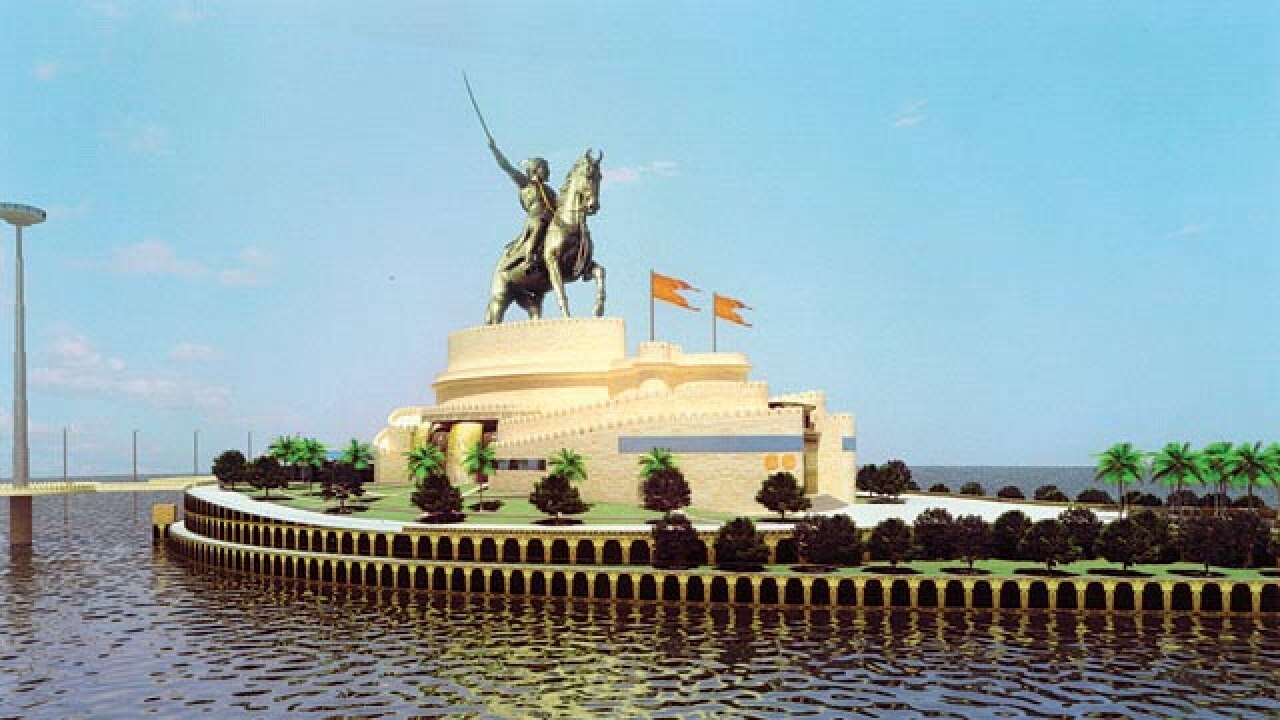
The Prime Minister this weekend lays the foundation of what might well become a landmark representing Mumbai and Maharashtra. With the proposal to erect a giant statue immortalising Chhatrapati Shivaji Maharaj on an island off the coast of Mumbai on its way to realisation, it is time to keep politics—of the electoral and identity kinds—aside and look at the real difference the seventeenth century king made to the idea of India.
Shivaji raja has long been proclaimed a national hero by historians, at a time when the social schisms were not so apparent and survival of political parties did not depend on deepening these divisions. In the present inclusive climate, it may not be easy to plainly state that the Maratha king asserted the right of self-determination of his people against fanatical rulers who decreed their superiority in a variety of ways: social, religious and military.
It was never going to be easy to be the founder of an independent kingdom between the Bahmani states to the south and the menacing Mughal forces coming down from the north. Rather than pursue the narrow path of self interest or be happy with a jagir given by the Bijapur and Mughal rulers, the young Shivaji raja conceived that the way ahead was to found an independent kingdom, a swarajya, where his countrymen could live with freedom and self-respect. However from conception to actualization, it was a long struggle.
Beginning with the capture of a fort or two, subjugation of recalcitrant jagirdars, gathering a band of loyal men and building a string of mountain fastnesses, a foundation was laid. Guile and courage were equal partners in so ambitious an enterprise. To the Mughal Governor of Surat, he wrote, ‘as their king had forced him to keep an army for the defence of his people and country, so that army must be paid, and if they send him not the money speedily, he bid them make ready a large house for him, for he would come...’ The historian Surendranath Sen says, ‘the chauth (a quarter of the revenue) in Shivaji’s time was therefore a military contribution paid by defenseless subjects of enemy kingdoms…’
Shivaji raja’s concern for his people was paternal and visceral. He was the protector of the weak but severely punished the guilty. The management of his kingdom was ahead of the times. Whether it is his letter to preserve trees in his kingdom or his famous letter to Aurangzeb against the imposition of the jiziya, his outlook was almost modern. Sen writes, ‘Shivaji’s conception of a Hindu Empire was in no way identified with religious persecution. He venerated the Muslim saint Shaikh Muhammad as he venerated the Hindu saints Tukaram and Ramdas.’
Raja Shivaji thus, was a unique leader. Besides successfully defending his people and leading campaigns in Mughal territory, he imposed a moral code on his armies. In the last five years of his life, the French envoy Germaine who visited him in the Carnatic wrote of his camp, ‘without pomp, without women, no baggages, only two simple tents of simple cloth; one for himself and the other for his Prime Minister’.
Raja Shivaji visited Aurangzeb at Agra following a treaty with the Mughals. After a brief appearance in court, Aurangzeb imposed a house arrest on the Maratha king. However, Shivaji raja escaped, and on his return, rapidly recouped the losses of the previous war. He attacked Surat a second time and literally threw a challenge at the Mughals. The lapse was lamented by Aurangzeb to his dying day. In his will, the Emperor stated, ‘Negligence for a single moment becomes a cause of disgrace for long years. The escape of the wretch Siva took place through my carelessness, and (as a result) I have to labour hard to the end of my life.’
In 1674, Raja Shivaji became the first Hindu monarch to be crowned as Chhatrapati in several centuries. In a few decades, this kingdom became the first indigenous Empire in a thousand years. It was eventually the Marathas that the British had to defeat to win their Raj. Without this vital period of Maratha supremacy in our history, we would have had an unbroken spell of foreign rule extending nearly six centuries. The period from 1650 to 1800 is therefore a time to celebrate, for this Empire redeemed our pride as a civilisation and a people.
The statue in the sea may continue to appear mere political tokenism to a few. Perhaps it is now time to shed our nihilism and bow before the stirring deeds of a great king. The memorial would be the culmination of a long journey that began in the nineteenth century to restore a broken Samadhi of a noble king on the fort of Raigad.
The writer is author of Solstice at Panipat and the forthcoming The Era of Bajirao.